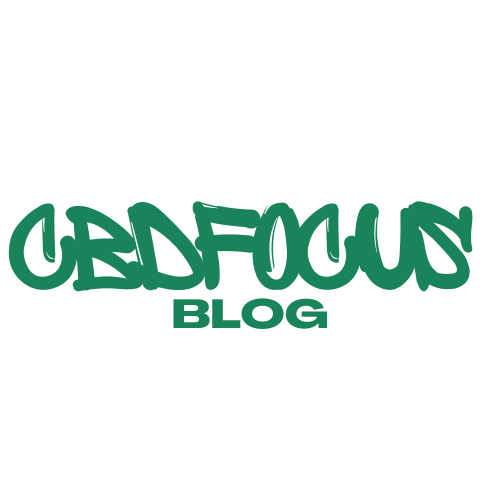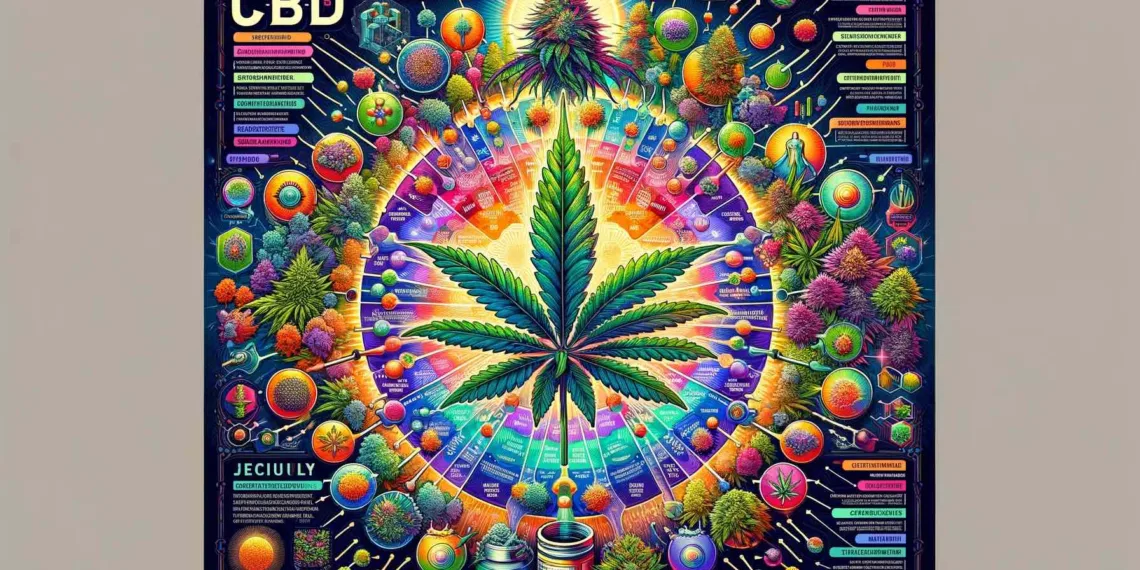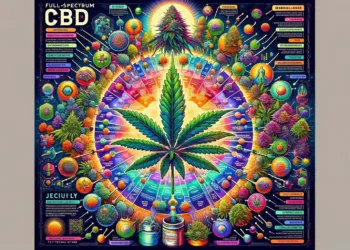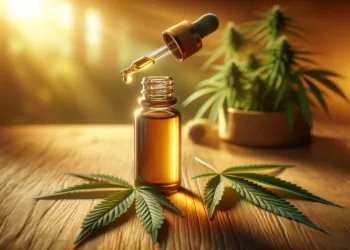Full Spectrum, Broad Spectrum, and CBD Isolate: Explaining the Differences. If you feel lost in the jungle of CBD products, you’re in the right place.
Today, we’ll address the often-asked question: What’s the difference between full-spectrum CBD, broad-spectrum CBD, and CBD isolate? Continue reading to understand which variant best suits your lifestyle.

What is CBD? CBD, or Cannabidiol, is just one of over 100 cannabinoids found in the cannabis plant. Unlike THC, CBD does not have psychoactive effects. That means you won’t experience any alterations in consciousness when you ingest it. But what CBD allegedly can do is reduce stress, relieve pain, and even contribute to better sleep. Not bad for a small molecule, right?
What Does Full Spectrum Mean? Full-spectrum CBD contains all the phytochemicals naturally occurring in the plant. This includes not only CBD but also all other cannabinoids, terpenes, and even traces of THC.
Pros and Cons The main advantage of full-spectrum CBD is the so-called “entourage effect”. This effect suggests that all components of the cannabis plant are more effective together than individually. But beware: Since full-spectrum CBD can contain small amounts of THC, there’s a risk of testing positive on drug tests.
Practical Applications Full-spectrum CBD is often recommended for more complex complaints like chronic pain or multiple sclerosis. Since it contains all cannabinoids, there are many application possibilities, but consulting with a physician is definitely recommended.

What is Broad Spectrum? Broad-spectrum CBD is essentially full-spectrum CBD, just without the THC. This makes it a great option for people who want to enjoy all the benefits of full-spectrum CBD but avoid THC for various reasons.
Pros and Cons Not having THC can be an advantage if you’re concerned about drug tests. The potential downside is that the entourage effect might be less effective without THC.
Practical Applications Broad-spectrum is suitable for individuals who are sensitive to THC or live in a state or country where THC is illegal. It’s often used for milder complaints like stress or minor pain.
What is CBD Isolate?
CBD isolate is the purest form of CBD. All other cannabinoids, terpenes, and other components have been removed. The end product is 99% pure CBD.
Pros and Cons The advantage of CBD isolate is that it contains absolutely no THC. This makes it ideal for those who are very sensitive to THC or concerned about drug tests. The downside is that you completely miss out on the entourage effect.
Practical Applications If you want to precisely control how much CBD you’re taking, then CBD isolate is perfect. It’s often used by athletes or individuals with specific health needs.

Comparison of the Three Types All three types have their own pros and cons, and the best choice depends on your personal needs. If you want to utilize the full spectrum of the cannabis plant, full-spectrum is the best choice. If you want to avoid THC, broad-spectrum or isolate is the way to go.
Frequently Asked Questions (FAQ) In this section, we answer any questions you might still have. Whether it’s about dosage or legal concerns, here you’ll find everything you need to know.
What is the “Entourage Effect”? The entourage effect refers to the phenomenon where all ingredients of the cannabis plant (like CBD, other cannabinoids, and terpenes) work synergistically to enhance the overall effect.
Does CBD Make You High? No, CBD is not psychoactive and does not alter consciousness like THC.
Is CBD Legal? The legality of CBD varies depending on the country, state, and even city. It’s important to check the laws in your area.
Can I Combine CBD with Other Medications? This is a question for your doctor. CBD can interact with other medications, so always consult a physician before starting CBD.
Is CBD Safe for All Ages? CBD is generally considered safe, but there isn’t enough research on its long-term effects. Older individuals and children should consult a doctor before taking CBD.
How Do I Find the Right Dosage? The optimal dosage varies from person to person and depends on many factors like body weight and the reason for use. It’s best to start with a low dose and gradually increase it while observing the effects.
What’s the Difference Between Hemp and Cannabis? Although often used synonymously, hemp and cannabis are not exactly the same. Hemp generally contains less than 0.3% THC, while cannabis can contain higher amounts of THC.
Where Can I Buy High-Quality CBD? The quality of CBD can vary greatly. It’s important to choose products from reputable manufacturers and ensure they have been tested by third parties.
There is no “one-size-fits-all” approach to CBD. Depending on what you’re looking for – be it maximum efficacy, zero THC, or pure CBD – there’s an option for you. And don’t forget: Before trying any kind of CBD, consult a doctor, especially if you’re already taking other medications.
Did you like the article? Then dive deeper into the world of CBD and subscribe to our newsletter. There you’ll find more exciting information and exclusive offers.










